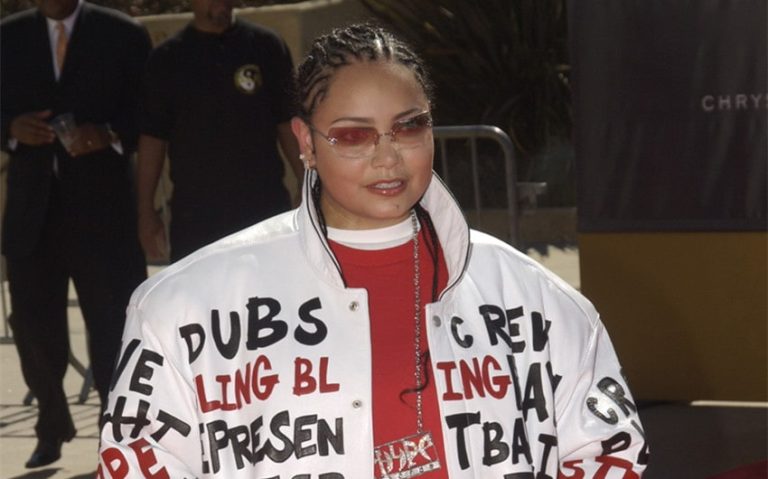If you grew up watching classic television, there’s a good chance the catchphrase “Dy-no-mite!” still rings in your ears with perfect comedic timing. That unforgettable line came from Jimmie Walker, who played J.J. Evans on the hit 1970s sitcom Good Times. The show made him a household name, and his quirky, energetic performance turned J.J. into one of the most beloved characters on TV. But as time passed, fans began to wonder what became of the actor—and more recently, what Jimmie Walker from Good Times net worth might look like after decades in the business.
Let’s break down the journey of Jimmie Walker’s net worth and see how a sitcom icon built a career that lasted well beyond his first big break.
The Breakout Years: “Dy-no-mite!” and Sitcom Fame
Jimmie Walker got his start in showbiz during the stand-up comedy boom of the late 1960s and early ’70s, but it was his casting as James Evans Jr. (aka “J.J.”) on Good Times that skyrocketed his visibility. The show aired from 1974 to 1979 and quickly became a defining program of the era, offering a humorous but meaningful look at life in a working-class African-American family. Walker’s portrayal of the over-the-top, art-loving J.J. stole the spotlight week after week—and so did his now-iconic catchphrase.
Back in the 1970s, television actors didn’t make the kind of money we associate with stars today. According to industry reports and interviews from that time, Walker likely earned between $1,000 and $3,000 per episode during the early seasons, with pay increases as the show’s popularity grew. With 133 episodes total, even a conservative average of $2,500 per episode would have brought him over $300,000 throughout the series—an impressive figure at the time, though modest by today’s standards.
Additionally, Walker’s catchphrase “Dy-no-mite!” became a pop culture phenomenon. It was used in merchandising, promotional spots, and media appearances. While the details of licensing deals from that era are murky, it’s possible Walker received some form of residual or performance bonus tied to the use of his persona and phrase, especially in promotional campaigns.
Still, despite the fame and steady pay, Walker was not the highest-paid member of the Good Times cast, nor was he part of long-term syndication royalty deals that some other TV actors secured later on. Much of his financial foundation would come from what he did after the show ended.
The Comedy Hustle: Life After Prime Time
After Good Times went off the air, Walker returned to his roots in stand-up comedy. Rather than rely solely on residuals or wait for another lead acting role, he hit the comedy circuit across the U.S., performing in clubs, theaters, and casinos. Stand-up may not always offer glitzy paychecks, but for an established name like Walker, it’s a reliable source of income—especially when you’re performing to nostalgic crowds eager to reconnect with a beloved figure from their youth.
During the 1980s and 1990s, Walker toured consistently, often appearing alongside other comedy greats. He became known not just as the guy from TV, but as a sharp and often surprisingly edgy comedian with a distinctive voice and delivery. These shows, combined with guest roles on TV shows and films, kept the money flowing and helped him stay in the public eye.
He also appeared on game shows like The Match Game, talk shows like The Tonight Show, and even made cameo appearances in pop culture parodies and documentaries. These smaller gigs may not bring in major money individually, but together, they contribute to a stable and ongoing income stream.
Smart Moves and Career Longevity
Jimmie Walker has also proven himself savvy in building a sustainable, long-term career. He published a memoir, Dynomite!: Good Times, Bad Times, Our Times, which gave fans an inside look at his rise to fame and the challenges that came with it. Book deals and related speaking engagements are another way entertainers diversify their income, and Walker has used his story to connect with both older and younger audiences.
He’s also stayed relevant through commentary work, radio appearances, and political commentary—areas where his unfiltered views and comedic tone have sparked both attention and controversy. While not everyone agrees with his opinions, Walker’s ability to stir discussion has kept his name in the media, which in turn helps with bookings, promotions, and digital content sales.
There’s also a practical side to his longevity. Walker is known to have lived relatively modestly and avoided the kind of high-profile spending that trips up many celebrities. By staying grounded and working steadily over the years, he’s managed to build wealth not through blockbuster deals, but through consistency and discipline.
Public Curiosity and Financial Estimates
Part of the ongoing curiosity around Jimmie Walker’s net worth comes from his enduring relevance. Even decades after Good Times, fans remain fascinated by what he’s done and how he’s doing. This kind of public interest often leads to searches, speculation, and coverage that keep someone’s brand alive long after their original fame.
So, how does his financial portfolio look? While Walker isn’t flaunting mansions or exotic cars on social media, his income from decades of performing, touring, and small-screen appearances likely stacks up respectably. Unlike celebrities who earn most of their wealth in a short burst, Walker’s career has been a marathon—not a sprint. That slow, steady growth can lead to lasting financial security, especially when paired with smart money management.
Estimating Jimmie Walker’s Net Worth in 2025
Given the range of his work, his careful career choices, and his ongoing performance schedule, Jimmie Walker’s net worth in 2025 is estimated to be between $1 million and $2 million. This figure includes:
-
Good Times salary over five seasons
-
Guest appearances, film roles, and commercial work
-
Stand-up comedy tours and live performance income
-
Book sales and related speaking engagements
-
TV and radio commentary appearances
It’s a reflection of a life spent working—not just basking in past fame, but continuously engaging with audiences in new ways. Walker has built a legacy not just of laughs, but of financial resilience. He’s a reminder that staying relevant doesn’t always require reinvention—sometimes it just takes showing up, performing well, and giving people a reason to remember you.
So while he may forever be known as J.J. from Good Times, Jimmie Walker has turned that early success into something far more lasting. His story isn’t just about sitcom fame—it’s about how to turn a pop culture moment into a career, and how to turn a career into financial peace of mind.







